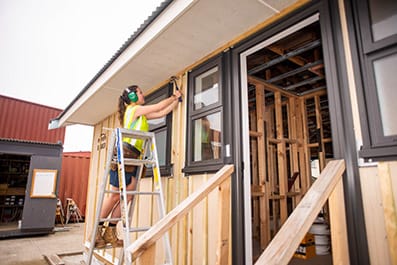
- Government aims to streamline building regulations and boost construction efficiency across New Zealand.
- Reforms target reducing red tape and improving housing affordability through structural changes.
- New initiatives address the building consent system, overseas products, and accountability for builders.
The Government is implementing significant reforms to the building and construction sector to create more affordable housing and boost the economy, according to Building and Construction Minister Chris Penk.
Related: Government Reviews Building Consent System Reform
“If we want to grow the economy, lift incomes, create jobs and build more affordable, quality homes we need a construction sector that is firing on all cylinders," Mr Penk said.
He noted that a recent report revealed the sector supports 20% of jobs in New Zealand and contributes $99 billion in sales, but productivity levels have stagnated since 1985. On average, it now takes 19 months to build a home, a situation worsened by complex building consent processes.
“This red tape strangles productivity and makes building more expensive,” Mr Penk explained. He emphasised that fewer homes are being built than possible due to these regulatory obstacles. As a response, the Government is undertaking the largest structural reforms in the sector since 2004.
Penk explained the reforms aim to make building easier by streamlining regulations and ensuring they are proportionate to risk. The goal is not to lower standards but to remove unnecessary rules that add little value. Trusted professionals will be empowered to complete projects more efficiently.
Among the reforms already announced are changes to improve efficiency in the building consent system and efforts to drive down costs by removing barriers to overseas building products. Other initiatives include allowing the construction of smaller structures, such as Granny Flats, without requiring consent and increasing the use of remote inspections to cut delays.
Additional measures include strengthening accountability for builders through enhanced registration and licencing regimes, extending deadlines for earthquake-prone buildings, and reviewing legislation to better balance safety risks with real-world impacts on owners.
The Government has also introduced smaller projects like home renovations being exempt from paying the building levy and streamlining minor consent variations to avoid unnecessary paperwork.
“These reforms are part of the Government’s broader strategy to rebuild the economy and tackle the housing crisis,” Mr Penk concluded.

